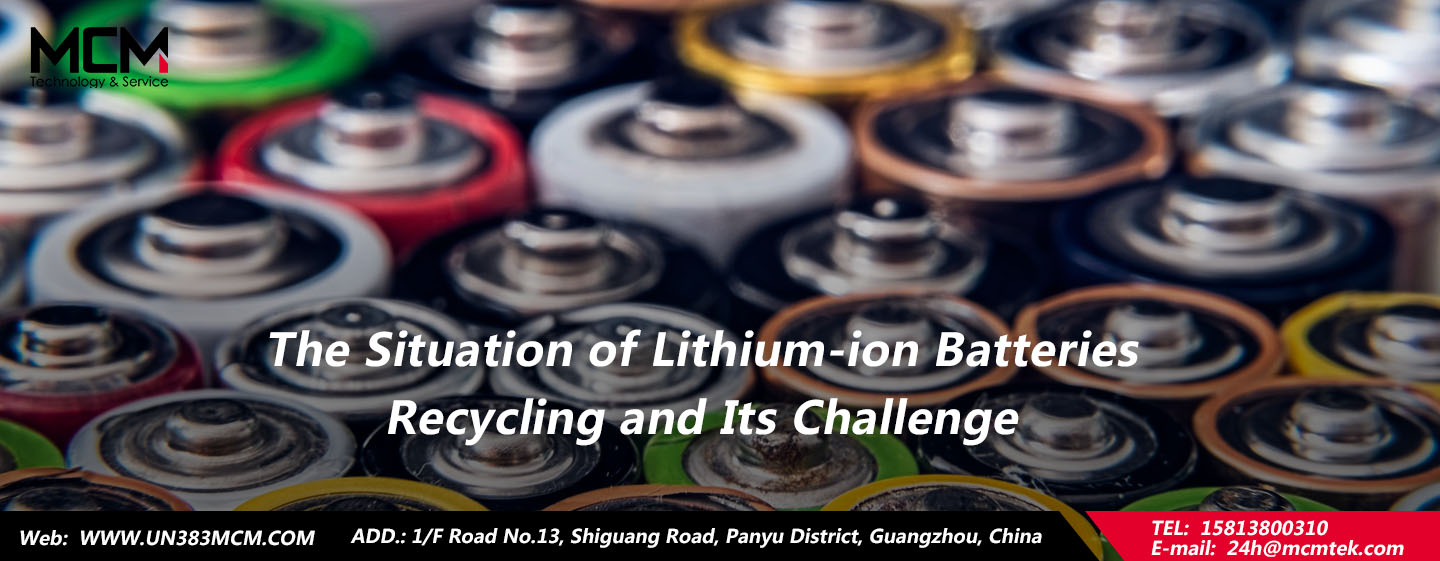Why do we develop recycling of batteries
The shortage of materials caused by rapid increase of EV and ESS
Inappropriate disposing of batteries may release heavy metal and poisonous gas pollution.
The density of lithium and cobalt in batteries is much higher than that in minerals, which means batteries are worth recycling. Recycling anode materials will save more than 20% of battery cost.
Regulations on recycling lithium-ion batteries in different areas
The U.S.A
In America, the federal, state or regional governments own the right of disposing and recycling lithium-ion batteries. There are two federal laws related to lithium-ion batteries recycling. The first one is Mercury-Containing and Rechargeable Battery Management Act. It requires companies or shops selling lead-acid batteries or nickel–metal hydride batteries should accept waste batteries and recycle them. The method of recycling lead-acid batteries will be seen as the template for the future action on recycling lithium-ion batteries. The second law is Resource Conservation and Recovery Act (RCRA). It builds up the framework of how to dispose non-dangerous or dangerous solid waste. The future of Lithium-ion batteries recycling method may under the management of this law.
EU
EU has drafted a new proposal (Proposal for a REGULATION OF THE EUROPEAN PARLIAMENT AND OF THE COUNCIL concerning batteries and waste batteries, repealing Directive 2006/66/EC and amending Regulation (EU) No 2019/1020). This proposal mentions poisonous materials, including all kinds of batteries, and the requirement on limitations, reports, labels, the highest level of carbon footprint, the lowest level of cobalt, lead, and nickel recycling, performance, durability, detachability, replaceability, safety, health status, durability and supply chain due diligence, etc. According to this law, manufacturers must provide information of batteries durability and performance stats, and information of batteries materials source. The supply-chain due diligence is to let end users know what raw materials are contained, where do they come from, and their influences on the environment. This is to monitor the reuse and recycle of batteries. However, publishing the design and material sources supply chain may be a disadvantage for European batteries manufacturers, therefore the rules are not officially issued now.
European countries
Some European countries may have their own policy on management of lithium-ion batteries recycling.
The U.K. does not publish any rules on lithium-ion batteries recycling. The government used to suggest levy a tax on recycling or renting, or pay for allowance for the cause. Yet none official policy comes out.
Germany has a legal framework on lithium-ion batteries recycling. Like the laws for recycling in Germany, Germany battery law and end-of-life recycling law. Germany emphasizes EPR and clarifies the responsibility of manufacturers, consumers and recyclers.
France has issued laws for batteries recycling for a long time, and the acts are amended for some times. The laws announce a mandatory responsibility of collecting, classifying and recycling batteries for manufacturers and sellers.
China
China has issued some regulations on solid waste and dangerous waste, like the law of solid waste pollution control and rules for waste batteries pollution control, which covers the manufacturing, recycling and many other areas for lithium-ion batteries. Some policies also regulate the batteries from Chinese abroad. For example, Chinese government has issued a law to prohibit solid waste from importing to China, and in 2020, the law was amended to cover all the wastes from other countries.
Asia
There are many legal terms regulate recycling of batteries in Japan. Japan Portable Rechargeable Battery Recycling Center (JBRC) is in charge with the recycling in Japan.
India also publishes waste batteries regulations. They require manufacturers, sellers, consumers and any entity that relates to recycling, quarantine, transporting or recondition, should take charge of their own responsibility. Meanwhile governments will set up a central EPR registration system for management.
Australia has no relevant recycling policy yet.
The challenge of recycling batteries
It’s difficult to dispatch or dispose batteries with different construction.
Recycling batteries with complex anode materials is difficult. Besides, the recycled batteries are not able to recover cycling performance of new batteries.
The complexity of batteries, the vacuum of supervision and unstandardized market lower the profit of recycling, making it uneconomical. Not to mention the problems of collecting, transporting, stocking and other logistic problem.
Conclusion
It’s a necessary and urgent job to recycle lithium-ion batteries, no matter in the vision of environment protection or resource saving. Many countries are indeed focusing on recycling batteries, and putting more to research. The challenges are mainly on: decreasing cost, developing a better commercial mode, better dispatching methods, improving classification, the technology of separating materials, standardizing recycling procedure and to form an industry regulation and a good recycling and reusing system.
Post time: Oct-31-2022


